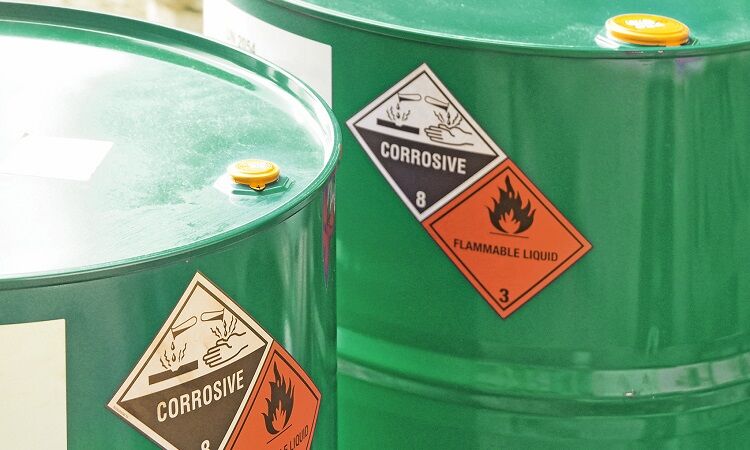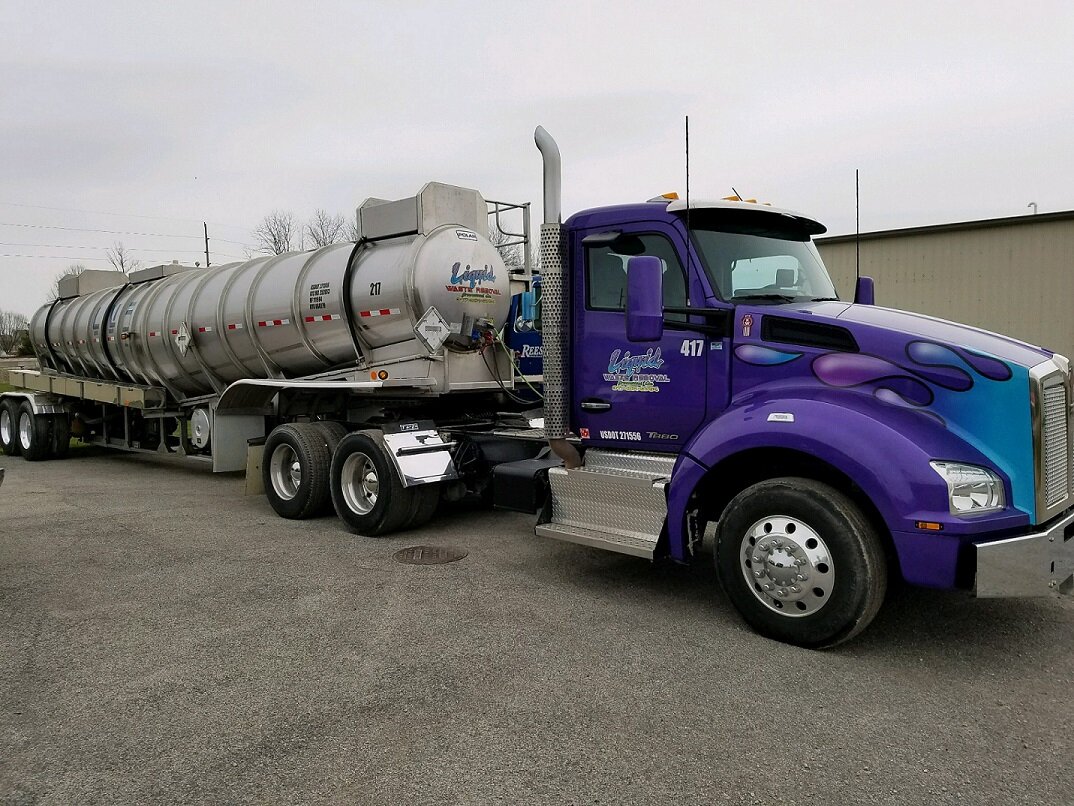Comprehensive Liquid Waste Disposal: Solutions for Houses and Services
Comprehensive Liquid Waste Disposal: Solutions for Houses and Services
Blog Article
Understanding the Comprehensive Refine of Liquid Waste Disposal: Finest Practices and Environmental Effect Considerations
The administration of fluid waste disposal is a multifaceted concern that requires a detailed understanding of different ideal methods and their linked environmental influences. From the types of fluid waste created to the techniques used for collection, treatment, and last disposal, each action plays a vital role in securing ecosystems and public health and wellness.
Kinds Of Liquid Waste
Recognizing the various kinds of fluid waste is important for reliable management and disposal methods. Fluid waste can be generally categorized right into numerous kinds, each requiring distinct handling and treatment strategies.
Industrial fluid waste frequently consists of hazardous materials, including hefty steels, solvents, and chemicals, generated during manufacturing processes. These wastes require rigorous governing conformity to protect human health and the atmosphere. Domestic liquid waste mostly describes wastewater created from households, including sewage and greywater, which, although less harmful, can still position considerable threats if incorrectly handled.
Agricultural fluid waste, consisting of overflow from farms, commonly consists of plant foods and chemicals that can bring about ecological destruction otherwise dealt with appropriately. Clinical fluid waste, produced from healthcare centers, consists of polluted liquids such as physical fluids and chemicals, needing specialized disposal methods to stop infection and ecological contamination.
Finally, oil and grease waste, usually created by restaurants and automobile industries, can trigger serious blockages in sewage system systems otherwise handled properly. Understanding these groups promotes targeted methods for treatment, compliance with laws, and efficient disposal methods, ultimately advertising environmental sustainability and public health safety and security.

Collection Techniques
Effective collection approaches are critical for the appropriate administration of fluid waste, making sure that it is gathered securely and effectively prior to treatment or disposal. Different techniques are used depending upon the type of fluid waste generated, the quantity, and the particular characteristics of the waste.
One typical method is using committed collection tanks or sumps, which are created to capture fluid waste at the source. These systems commonly incorporate pumps that promote the transfer of waste to larger storage containers or treatment facilities. Additionally, mobile collection devices equipped with vacuum cleaner technology are used in circumstances where waste is created periodically or in hard-to-reach areas.
For industrial setups, closed-loop systems can successfully minimize spills and leakages, enabling the healing and reuse of liquid waste. It is likewise important to educate personnel on appropriate collection methods to reduce threats connected with dangerous materials.
In addition, implementing routine upkeep routines for collection tools ensures optimal performance and security. The combination of innovative surveillance systems can enhance collection efficiency by supplying real-time information on waste degrees and possible dangers. On the whole, reliable collection approaches are fundamental to lasting fluid waste monitoring techniques.
Treatment Processes
Treatment processes play an important function in the management of liquid waste, changing possibly harmful products right into reusable sources or secure effluents - liquid waste disposal. These procedures can be generally classified right into physical, chemical, and organic approaches, each tailored to address details impurities existing in the waste stream
Physical therapy approaches, such as sedimentation and purification, job by eliminating suspended solids and particulate matter. These strategies are commonly the very first step in the treatment chain, efficiently decreasing the load on succeeding procedures. Chemical treatments involve making use of reagents to reduce the effects of damaging compounds, precipitate heavy metals, or oxidize natural contaminants, therefore enhancing the safety of the effluent.
Organic therapy processes, including turned on sludge systems and anaerobic digestion, maximize the all-natural capabilities of microbes to deteriorate raw material. These methods are specifically efficient for wastewater having eco-friendly pollutants. important source Advanced therapy technologies, such as membrane layer filtration and advanced oxidation procedures, are progressively used to achieve greater degrees of purification.
Including a combination of these treatment approaches not just makes sure conformity with regulatory criteria however additionally promotes environmental sustainability by recouping beneficial resources from liquid waste.
Disposal Options
Exactly how can companies guarantee the liable and safe disposal of liquid waste? Reliable disposal choices are important for safeguarding public health and the environment. The key methods include land disposal, treatment, and incineration adhered to by discharge right into local wastewater systems.
Land disposal includes the cautious control of liquid waste in marked landfills, guaranteeing that it does not seep into bordering soil or water. Incineration, on the other hand, subjects fluid waste to high temperature levels, converting it right into ash and gases, which need proper purification to reduce discharges. This approach appropriates for dangerous wastes that can not be treated with traditional ways.
In instances where fluid waste can be dealt with, organizations may choose chemical or organic therapy processes to counteract hazardous components prior to releasing the treated effluent right into community systems. This route generally lines up with regulatory requirements, making sure that the effluent satisfies security criteria.
Ultimately, companies need to conduct detailed evaluations of each disposal alternative to establish its feasibility, considering factors such as waste make-up, governing compliance, and prospective risks to wellness and the atmosphere. By picking proper disposal approaches, companies can add to a liable waste administration method.
Environmental Effect
The ecological effect of fluid garbage disposal is a crucial factor to consider for companies looking for to reduce their ecological impact. Inappropriate disposal methods can result in substantial contamination of water sources, soil destruction, and unfavorable results on local ecological communities. As an example, hazardous fluids can seep right into groundwater, positioning dangers to drinking water products and water life. In addition, the discharge of unattended or inadequately treated waste into surface waters can result you can try these out in eutrophication, leading to oxygen depletion and the subsequent fatality of fish and various other microorganisms.

To minimize these influences, organizations have to take on finest content techniques such as executing extensive waste therapy processes, advertising recycling and reuse, and sticking to regulatory criteria. By taking an aggressive method to liquid waste monitoring, entities can considerably reduce their environmental footprint while sustaining sustainable advancement goals. Eventually, a thorough understanding of the ecological effects connected with fluid waste disposal is essential for informed decision-making and liable stewardship of natural deposits.
Conclusion
Efficient management of liquid waste is crucial for safeguarding ecological honesty and public health and wellness. By taking on ideal practices in collection, disposal, and therapy, alongside adherence to regulatory requirements, the potential for unsafe contamination of ecological communities can be substantially decreased. Continual advancements in innovation and procedures add to sustainable waste administration initiatives. Eventually, a thorough understanding of liquid waste disposal not only minimizes environmental impacts yet also cultivates a dedication to accountable resource management and ecological stewardship.
The management of liquid waste disposal is a diverse issue that calls for an extensive understanding of various ideal methods and their linked ecological effects. From the kinds of fluid waste produced to the approaches employed for collection, therapy, and final disposal, each action plays a crucial function in securing ecological communities and public health and wellness.The environmental impact of fluid waste disposal is an essential consideration for companies seeking to decrease their ecological footprint. Ultimately, a thorough understanding of the environmental effects associated with liquid waste disposal is vital for informed decision-making and responsible stewardship of natural sources.
Eventually, a comprehensive understanding of liquid waste disposal not only minimizes environmental effects yet also promotes a dedication to liable resource management and environmental stewardship.
Report this page